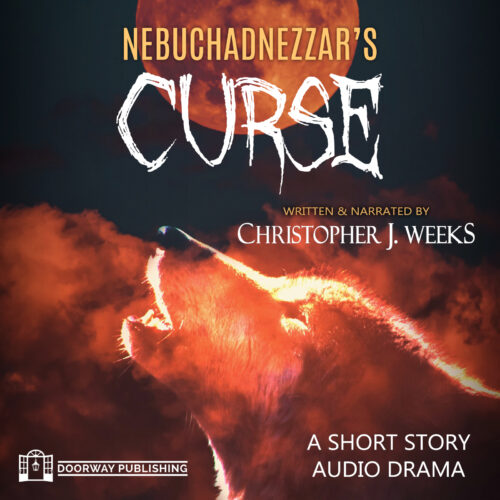
It was just a kiss.
That is all it was, one simple kiss. Two people were in a full embrace, lips locked, arms entwined, but it went no further because at that exact moment the two lovers were being watched by the heartbroken husband of the lady. The Beloved Queen Guinevere was caught stealing a secret kiss with Lancelot of the Lake. King Arthur’s most illustrious knight was the one who betrayed his king to both his and Guinevere’s eternal shame. At least that is how the movie First Knight portrayed this singular moment of passion.

Legend has it that it was actually more than just a kiss, it was a full-blown adulterous love affair. However, in the movie, there was no long-term illicit romance, just a kiss. And yet, this seemingly small indiscretion was still regarded as a treasonous act against the King demanding death. Both Guinevere and Lancelot were brought before the people of Camelot awaiting trial and then execution.
I can remember thinking to myself as Guinevere and Lancelot were standing terrified before king and country, “It was only one lousy kiss. How could King Arthur be so cruel and harbor such juvenile hatred for just one moment of G-rated passion? He should let them both go and forget about it.” I discussed the kiss with my wife who was watching the movie with me and she said, “Maybe it is because he is the king and his reputation has been tarnished beyond repair by one of his most trusted men. He probably needed to make it right so the people wouldn’t view him as a weak leader.” I considered her point and even though it sounded reasonable, I thought to myself, “Only a weak and morally feeble man would send people to their death just to protect his reputation.”
I mean, c’mon, it was only a kiss.
From my modern vantage point, King Arthur and his call for capital punishment seemed so barbarous, probably born from his small-minded-medieval boorishness, and his extreme justice from one stolen kiss appeared to me to be so arbitrary. Compared to our twenty-first-century democratic reasonableness, no transgression is ever really that bad. Next to your average American judge or politician, Arthur’s moral rigidity seemed utterly inhumane. We, the new civilized society, think like adults, with stoic tolerance being our highest value; whereas King Arthur was a moral toddler. His methods seem so primitive to our modern sensibilities. In our day and age, kissing someone else’s wife would no longer get the guillotine, in fact, it would be celebrated. In our sophistication, we do all we can to avoid punishing any act of indiscretion, no matter how monstrous. We are nice like that.
Having an even temper is a sign that the human race has matured.
Tolerance now is the highest virtue, and as a society, we have wonderfully mellowed as a collective soul. On the whole, we are much more reasonable people. We are so much more advanced in our moral and emotional sophistication than feudal lords and medieval kings. Ruthless monarchies are only an artifact from the violent past. A relic of a bygone era. We have grown into a softer secular age, with people of tailored suits with custom-fit scruples. No more petulant gods to fear, and no more arbitrary rules to keep.
And above all, secularism no longer seeks to punish. Rather our enlightened culture encourages freedom of expression without cost. No guilt, no shame, fully evolved.
And in this advanced climate of calm reason, a bloody cross seems irrelevant if not crass. At the base level, a man dying on a tree for the sins of others is simply no longer needed. It is so brutal and violent. A primitive tool to carry out the justice of a juvenile god.
As a modern man, I must ask the question, “Haven’t we moved past retributive justice? Aren’t we better than this?” Can’t God just act like a mature adult, forget about sin, and let it go?
And what is sin anyway? It can’t be that bad, can it? Some see it as nothing more than a nebulous label, as harmless as a stolen kiss. Why should God be offended at momentary indiscretion? How could a few seconds of passion deserve an eternity of pain? Sounds rather silly, doesn’t it?
Many brilliant minds of our enlightened age think God’s reaction to sin shows only an angry and arbitrary being who decides to punish people for no good reason. Petulant and rash. We need to grow up and move on. Haven’t we matured past his capriciousness in the same way the technology of our high-tech digital age is way more advanced than steam engines and morse code? Morally speaking, in our maturity, we have grown past punishment.
But what if it wasn’t just a kiss that Guinevere tendered? What if Guinevere was a devious woman of guile?
So I did a little more research and found that Guinevere’s character was much darker and more sinister than Hollywood portrayed her in First Knight. One legendary writer, Sir Thomas Malory, portrays Arthur as a man who was absolutely faithful to his beloved wife Guinevere. And Malory then points out that it was Guinevere who, “used charms and enchantments to win Lancelot’s love.” The pair started behaving carelessly in public, “and so they loved together hotter than they did beforehand.” They indulged in ‘privy draughts together’ and behaved in such a way that ‘many in the court spoke of it.’ Guinevere is charged with adultery on three occasions, including once when she is also accused of sorcery. Their not-so-secret affair was finally exposed when Arthur’s nephew, with 12 of his knights, found Lancelot and Guinevere in bed in her boudoir. She eventually was sentenced to burn at the stake, but Lancelot’s forbidden passion pushed him to eventually come to her rescue.
From reading Malory, it is clear that King Arthur was more than justified in his rage. Guinevere was supremely willful in her deceit, flaunting her indiscretion with complete disregard of her marital vows, flaunting her shame before the noble King. She soiled her husband’s honor before the people of the kingdom, and her punishment was due.
She deserved death.
Maybe my modern sensibilities, born in the passive stew of our secular tolerance, minimized the significance of her trespass? Maybe being nice isn’t really the greatest value of all.
And in the exact same way, what if sin is more deadly to the human race than viewing it simply as a momentary indiscretion? What if sin is a power that totally corrupts the sinner who sins rather than merely saying it was nothing. “I made a mistake”, “I was sowing wild oats”, or “What happens in Vegas stays in Vegas.” What if sin is actually more?
As Fleming Rutledge, an Episcopalian theologian, states, “Sin is not so much a collection of individual misdeeds as it is an active, malevolent agency bent upon despoiling, imprisonment, and death – the utter undoing of God’s purposes. Misdeeds are signs of that agency at work; they are not the thing itself. It is ‘the thing itself’, that is our cosmic Enemy.”
Our arrogant age of tolerance has ignorantly downplayed sin’s power. We no longer fear it, we think we have moved past its terrible effects. C. S. Lewis and Owen Barfield would call this “Chronological Snobbery.” This snobbery is defined as “an argument that the thinking, art, or science of an earlier time is inherently inferior to that of the present, simply by virtue of its temporal priority or the belief that since civilization has advanced in certain areas, people of earlier periods were less intelligent.” We have grown older, wiser, and wickedness has become like a tame pet in our modern hands.
Secularists believe our reason and ability to tolerate the vilest of sins, while juggling with glee the perversity of sexual experimentation, is a sign of progress. Sin’s power is not to be feared but embraced and accepted with courage as we flex our freedom. We are so mature now.
But are we mature? Have we advanced? It is easy to gloss over sin when boasting of your exploits to friends, or watching vain people parade their sexual wares online thinking of themselves as special, “influencers” they say. But in the quiet of the heart’s secret witness, shame cannot be contained. It bubbles up fiercely in the silence. You have felt the sting of sin. I know you have. You can’t lie to yourself when guilt crushes your spirit and exposes your wounded soul.
Chronological snobbery cannot calm the grief of a father whose daughter has been the victim of a sexual predator. Hair color and lipstick alone cannot cover the lostness of a person who no longer knows what it means to be made in the “image of God.” Try comforting a woman whose emotional scars run deep because they aborted their child all in the name of feminist progress.
Sin plays on a person’s arrogance like Guinevere on Lancelot’s lust. It needs to be killed to stop its power.
That is where the cross comes in, and it is in its crudeness and violence that the cure resides. It is meant to shock, to wake us up to our arrogance. To reach out for something we think is beneath us. As 1 Corinthians 1:27-29 says, “God chose the foolish things of the world to shame the wise; God chose the weak things of the world to shame the strong. God chose the lowly things of this world and the despised things—and the things that are not—to nullify the things that are, so that no one may boast before him.”
King Arthur was heartbroken. He lost the one he loved, he took no comfort in her shame. Same for the Father in heaven when sin steals the heart of his children. But the cross occurred to bring all of them back. His Son’s death gives life to those who lose their snobbery and admit they were fools. The cross is the answer to our arrogance.
God can’t let sin go, he can’t simply forget about it, because he wants his children back. So instead, he sent his Son.

Christopher J. Weeks is an author and has been a bartender, rugby player, salesman in the Chicago loop, teacher in Russia, and now for the last 25 years, he has been pastoring with his wife and four children at a rural church amidst the apple orchards of West Michigan farmland.





